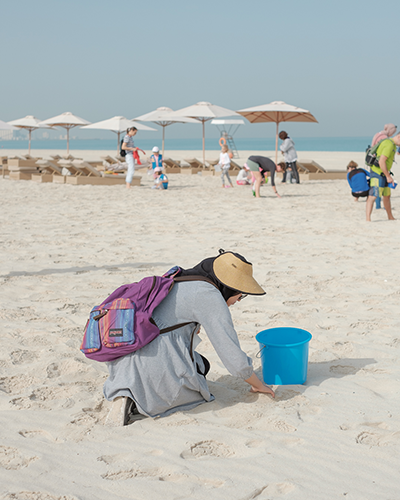 It is estimated that the amount of trash that is dumped into our oceans each year is 14 billion pounds according to Seastewards.
It is estimated that the amount of trash that is dumped into our oceans each year is 14 billion pounds according to Seastewards.
There are 5.25 trillion pieces of plastic debris reported to be in the world’s oceans according to the National Geographic.
Millions. Billions. Trillions.
Do we need these statistics to rise before we turn the tide on trash?
The good news is that various cause-oriented organisations around the world have been doing
environmental protection activities such as beach cleanups in the past 30 years. From these initiatives, 300 million pounds of trash have been collected according to the Ocean Conservancy.
These numbers alone show the positive environmental impact of doing coastal clean-ups, especially on a long-term, sustained basis.
SOS: Save Our Seas
The seas are screaming for help. With all these dizzying figures floating around, our oceans are in dire need of saving. It didn’t happen overnight. It didn’t happen on its own. It is us who have polluted our seas and, therefore, it is also up to us to save them.
Oceans contain 97 percent of the Earth’s water and cover three-quarters of its surface. It represents 99 percent of living space by volume and contains more than 200,000 identified species, with perhaps millions more that have escaped man’s knowledge. It is vast and diverse and dying.
Thankfully, there are individuals and groups who have taken steps to alleviate the suffering of the seas and the life underneath it. Groups around the globe have voiced their concern and are taking concrete steps to help save the seas.
One of the concerted efforts to clean up our oceans happens every September for the International Coastal Cleanup Day. Concerned people go to the beach and pick up trash along the shore. Others go far out into the sea to collect as much trash as they can. These efforts may seem small; but when done together, they can make a difference.
You, too, can act. Here are some of the top three reasons why you should also join coastal cleanup activities:
1. You can help protect people’s lives
The very air we breathe is mostly thanks to the oxygen that the oceans give off. Most people think that the Amazon is the main source of oxygen on the planet. However, it is our oceans that produce 70 percent of the oxygen needed for human life.
It is also the largest ecosystem on Earth. As a life support system, it is the primary source of protein for over three billion people. Aside from fish, there are also alternative sources of food like algae, crustaceans, mollusks, and sea plants.
There are also ingredients from marine life such as sponges, corals, and other organisms that are being used in medicine. These include the spongy Bugula neritina (from which bryostatin is derived), the Caribbean sponge Cryptotethya crypta, and Indian Sea Hare Dolabella auricularia which produces dolastatin (basis for the drug Auristatin)—which are all being used for cancer treatment, and still being studied for other beneficial health effects. This means that helping protect the sea also translates to helping protect human life.
2. You can help protect marine creatures
Aside from people, oceans are also home to millions of species, some known but most are undiscovered. However, with irresponsible human activities, marine creatures have lost and continue to lose their homes. The UN estimates that 20% of coral reefs have been irrevocably destroyed, close to 24% are in imminent danger, and 26% are under long-term threat.
Polluting the sea also contributes to the low concentration of oxygen in some areas. These hypoxic areas called “dead zones” make it impossible for aquatic life to live. Currently, there are nearly 500 dead zones covering more than 245,000 square kilometers globally.
Plastics and their broken-down parts called microplastics are killing aquatic life. Some animals get trapped in the rubbish that we throw directly into the ocean, while other sea creatures end up ingesting plastics. This is why even birds are affected as they get their food from the sea.
Even the noise generated by naval and shipping activities causes cellular damage to some aquatic species.
3. You can support people’s economic stability
More than three billion people rely on coastal and marine biodiversity as sources of their livelihood. With oceans continually being littered with trash, marine life is dying, and people are also losing their means of living.
Not only are fishermen and small-scale enterprises affected; over 200 million people are either directly or indirectly employed in marine fisheries as well. The estimated collective economic effect of improper ocean management practices is at least US$200 billion per year5, according to the UN Environment Programme.
Join the Movement
Knowing the impact of how the world’s garbage is affecting our seas can help people become more accountable for their actions. Environmental awareness and action is instrumental in curbing the dangerous ways we treat the Earth and its oceans. With the key reasons stated above, people can be more mindful of how to help protect the planet.
Learn more about how you can make a difference by taking part in activities to connect with nature and with other people making a difference with you! Being aware of the plight of the planet will help everyone understand why cleaning up coastal waters is an urgent matter, and can send ripples of change across the oceans.
References:
https://seastewards.org/projects/healthy-oceans-initiative/marine-debris-and-plastics/
https://www.businessinsider.com/r-oceans-yield-1500-new-creatures-many-others-lurk-unknown-2015-3
https://www.nationalgeographic.com/news/2015/1/150109-oceans-plastic-sea-trash-science-marine-debris/#targetText=The%20numbers%20are%20staggering%3A%20There,kilometer%20litter%20the%20deep%20sea.&targetText=Scientists%20call%20these%20statistics%20the%20%22wow%20factor%22%20of%20ocean%20trash.
http://www.medicinehunter.com/importance-drugs-sea
https://www.ncbi.nlm.nih.gov/pmc/articles/PMC4626970/
https://www.un.org/sustainabledevelopment/wp-content/uploads/2018/09/14.pdf
http://www.cwmun.org/wp-content/uploads/2019/01/UNEP-2019.pdf